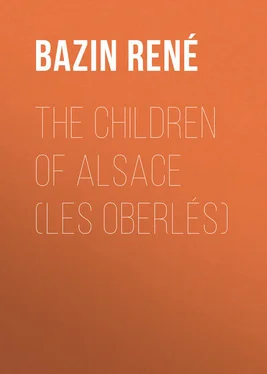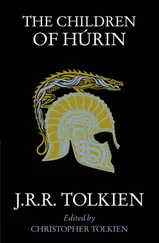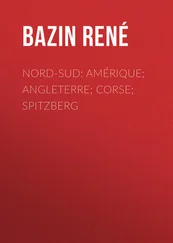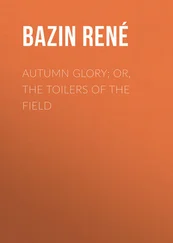René Bazin - The Children of Alsace (Les Oberlés)
Здесь есть возможность читать онлайн «René Bazin - The Children of Alsace (Les Oberlés)» — ознакомительный отрывок электронной книги совершенно бесплатно, а после прочтения отрывка купить полную версию. В некоторых случаях можно слушать аудио, скачать через торрент в формате fb2 и присутствует краткое содержание. ISBN: , Жанр: foreign_language, foreign_antique, foreign_prose, на английском языке. Описание произведения, (предисловие) а так же отзывы посетителей доступны на портале библиотеки ЛибКат.
- Название:The Children of Alsace (Les Oberlés)
- Автор:
- Жанр:
- Год:неизвестен
- ISBN:http://www.gutenberg.org/ebooks/34957
- Рейтинг книги:5 / 5. Голосов: 1
-
Избранное:Добавить в избранное
- Отзывы:
-
Ваша оценка:
- 100
- 1
- 2
- 3
- 4
- 5
The Children of Alsace (Les Oberlés): краткое содержание, описание и аннотация
Предлагаем к чтению аннотацию, описание, краткое содержание или предисловие (зависит от того, что написал сам автор книги «The Children of Alsace (Les Oberlés)»). Если вы не нашли необходимую информацию о книге — напишите в комментариях, мы постараемся отыскать её.
The Children of Alsace (Les Oberlés) — читать онлайн ознакомительный отрывок
Ниже представлен текст книги, разбитый по страницам. Система сохранения места последней прочитанной страницы, позволяет с удобством читать онлайн бесплатно книгу «The Children of Alsace (Les Oberlés)», без необходимости каждый раз заново искать на чём Вы остановились. Поставьте закладку, и сможете в любой момент перейти на страницу, на которой закончили чтение.
Интервал:
Закладка:
"Yes, yes, they are gone. You don't like them any more than I do."
Before continuing his way, he waited to make sure that the Hussars would not return in his direction. He did not like meeting German soldiers. These encountered hurt the sore and suspicious pride of the conquered man; they hurt him through his fidelity to France – through his love, which always dreaded a new war – a war, the date of which he saw with astonishment recede and recede. He would sometimes go a long way round in order to avoid a troop on the march on the high roads. Why had those Hussars come to disturb his descent to Alsheim? Always these manœuvres, always this thought of the West away down there, to which they clung with such tenacity; always this beast of prey who prowls supple and agile on the summit of the Vosges, and who watches the moment for descending.
M. Ulrich went down the beech-wood slopes, his head bent, his mind full of sad memories, which a word had been sufficient to call up – less than a word even – for alas! mingled with them, and ready to rise again out of the past, was all the youth of the man. He was careful to make no noise, keeping his dog behind him, and not caressing him when the poor beast rubbed his nose against his master's hand as if to say, "What is the matter then? Are they not gone?"
In a quarter of an hour, by the wider road which he re-entered at the end of the beech-wood, M. Ulrich gained the edge of the forest. A cooler, stronger breeze blew through the oak and hazel copses which bordered the plain. He stopped and listened towards the right, saying, with a displeased shrug of the shoulders:
"That is how they will come back! Not a soul will have heard them! For the moment let us forget them and go and say 'How do you do?' to Jean Oberlé."
M. Ulrich went down a last bit of short, steep path. A few more steps and the screens of undergrowth and brushwood which hid the view were passed. He saw the entire sky unveiled, and below him, in front, to the left and to the right, something of a softer, more misty blue, the land of Alsace. The smell of the fields and of plants wet with the dew, rose from the soil like a harvest of the night. The wind wafted it, the cold wind, the familiar passer-by on this plain, the vagabond companion of the Rhine. One could distinguish no detail in the shadow where Alsace slept, except at a distance of a few hundred yards, where lines of roofs clustered about a round grey belfry ending in a steeple. That was the village of Alsheim. M. Ulrich hastened on and soon found the course of the stream again, now more rapid than ever, the bank of which he had skirted in the mountain; walked along by it, and saw stand out, high and massive, in its park of trees despoiled by winter, the first house of Alsheim – the house of the Oberlés.
It was built on the right of the road, from which it was separated, first by a white wall, then by a brook which ran through the domain more than two hundred yards farther, providing the water necessary for the engines, and then flowing, enlarged and cunningly directed, among the trees, to its outlet. M. Ulrich went through the large gate of wrought iron which opened on to the road, and passing by the lodge-keeper's cottage, leaving to the right the timber-yard full of piled-up wood, of cris-crossed planks, of poles, and of sheds, he took the left avenue, which wound between clumps of trees and the lawn, and reached the flight of steps before a two-storied house, with dormer windows, built of the red stone of Saverne and dating from the middle of the century. It was half-past eight. He went eagerly up to the first floor and knocked at the door of a room.
A young voice answered:
"Come in!"
M. Ulrich had not time to take off his shooting-cap. He was seized round the neck, drawn forward, and embraced by his nephew, Jean Oberlé, who said:
"Good evening, Uncle Ulrich! Ah! How glad I am! What a good idea!"
"Come, let go of me! Good evening, my Jean! You have just arrived?"
"I got here at three o'clock this afternoon. I should have come to see you to-morrow, you know!"
"I was certain of it! But I could not wait so long. I simply had to come down and see you. It is three years since I saw you, Jean! Let me look at you!"
"At your leisure," said the young man, laughing. "Have I changed?"
He had just pushed a leathern arm-chair up to his uncle, and sat down facing him, on a sofa covered with a rug and placed against the wall.
Between them there was a table, on which burned a little oil lamp of chased metal. Near by through the window, whose curtains were drawn aside, the park could be seen all motionless and solitary in the moonlight. M. Ulrich scrutinised Jean with a curiosity at once affectionate and proud. He had grown – he was a little taller than his uncle. His solid Alsatian face had taken on a quiet firmness and more pleasing lines. His brown moustache was thicker, his easy gestures were now those of a man who has seen the world. He might have been mistaken for a Southerner because of the Italian paleness of his shaven cheeks, of his eyes encircled with shadow, because of his dark hair which he wore parted at the side, and because of his pale lips opening over fine healthy teeth, which he showed when he spoke or smiled. But several signs marked him a Child of Alsace. The width of his face across the cheek-bones, his eyes green as the forests of the Vosges, and the square chin of the peasants of the valley.
He had inherited some of their characteristics, for his great grandfather had guided the plough. He had their sturdy horseman's body. The uncle also guessed, by the youthfulness of the glance which met his, that Jean Oberlé, the man of twenty-four, whom he was now looking at once more, was not very different morally from him whom he had known formerly.
"No," he said, after a long pause, "you are the same! – only you are a man – I was afraid of greater changes."
"And why?"
"Because, my boy, at your age especially there are certain journeys which are crucial tests. But first, where do you come from, exactly?"
"From Berlin, where I passed my Referendar examination."
The uncle laughed a jerky laugh, which he repressed quickly, and which was lost in his grey beard.
"Let us call that the Licence en droit examination – if you kindly will."
"Most willingly, uncle."
"Then give me a fuller explanation and one more up-to-date, for you must have had your diploma in your pocket more than a year. What have you done with your time?"
"It's very simple. The year before last I passed my examination, as you know, in Berlin, so finishing my law studies. Last year I worked with a lawyer till August. Then I travelled through Bohemia, Hungary, Croatia, and the Caucasus – with father's permission. I took six months over it. I returned to Berlin to get my student's luggage and to pay some farewell visits – and here I am."
"Well, and your father? In my haste to see you again I have not asked after him. Is he well?"
"He is not here."
"What! Was he obliged to be absent on the very evening of your return?"
Jean answered with a little bitterness:
"He was obliged to be present at a great dinner at the Councillor von Boscher's. He has taken my sister. It is a very grand reception, it seems."
There was a short silence. The two men smiled no longer. They felt between them – quite near – the supreme question, imposing itself upon them after a three minutes' conversation, that exasperating and fatal question which cannot be avoided, which unites and divides, which lurks beneath all social intercourse, honours, mortifications, and institutions, the question which has kept Europe under arms for thirty years.
"I dined alone," said Jean, "that is to say, with my grandfather."
"Not much of a companion, poor man. Is he not always so depressed, and so very infirm?"
Читать дальшеИнтервал:
Закладка:
Похожие книги на «The Children of Alsace (Les Oberlés)»
Представляем Вашему вниманию похожие книги на «The Children of Alsace (Les Oberlés)» списком для выбора. Мы отобрали схожую по названию и смыслу литературу в надежде предоставить читателям больше вариантов отыскать новые, интересные, ещё непрочитанные произведения.
Обсуждение, отзывы о книге «The Children of Alsace (Les Oberlés)» и просто собственные мнения читателей. Оставьте ваши комментарии, напишите, что Вы думаете о произведении, его смысле или главных героях. Укажите что конкретно понравилось, а что нет, и почему Вы так считаете.












